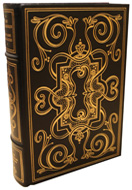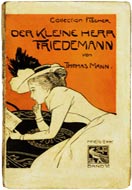A sequence of autograph letters signed to Richard Culverwell, his tailor and money lender, with another to James Crossley.
DISRAELI, Benjamin.
Verkäufer
Peter Harrington. ABA/ ILAB., London, Vereinigtes Königreich
Verkäuferbewertung 5 von 5 Sternen
![]()
AbeBooks-Verkäufer seit 26. Juli 1999
Beschreibung
Beschreibung:
A remarkable and revealing sequence of letters, uncovering Disraeli's secretive relationship with his tailor and creditor, Richard Culverwell, in which a good deal of detail about Disraeli's complex financial affairs remains to be teased out. Some of Disraeli's biographers have mingled scorn and amusement that their impecunious subject should borrow money from his tailor, though he was following widespread, albeit disreputable, contemporary practice. Tailors were then almost a byword for their secondary and perhaps more profitable trade as usurers, money lenders who traded in discounted bills. Richard Culverwell (1787-1867) worked as a tailor, first at Dod's in St James's, then between about 1820 and 1848 on his own account at 53 Great Marylebone Street, after which he retired first to Kilburn, then Clapham, though in his retirement he continued to discount bills. He profited handsomely over the years, leaving near £40,000 at his death. From the references in the correspondence to Vincent Stuckey Reynolds, a Taunton banker who married a daughter of George Basevi Sr, Disraeli likely met Culverwell through that family connection. Culverwell was born in Upottery, Devon, 12 miles south of Taunton, and appears to have acted as Reynold's financial agent in London. In the spring of 1835, shortly before the correspondence begins, Disraeli had contested the Taunton by-election as a tory, an election during which his sister Sarah doubted he had Mr Reynolds's vote. After Disraeli's defeat and return to London, rumours swirled that he had left electioneering debts there. The correspondence begins in 1835, when Disraeli was staying in Richmond. He rode to London each day and returned to Richmond at night. The distance allowed him to keep his creditors at arm's length. The second letter, from Richmond, Wednesday, datable to 19 August 1835, begins: "Dear Sir, I am confined to this place by a broken shin. I am perfectly confounded by your notes & that of Mr. R. I thought at this time to have an immense balance at my bankers. Tell Mr. Reynolds, with my best compliments, that I will & have attended instantly to the business, but cannot move …" Disraeli's leg injury was real but had occurred in January and long since healed. The excuse is the most brazen of many. Throughout the correspondence, Disraeli makes only sporadic reference to clothing, especially the colourful waistcoats that would later play a large part in his parliamentary image. Occasionally, he attempts to regain authority by complaining of their quality or flaunts his connections by offering to introduce Culverwell to his patron, Lord Lyndhurst. But the overwhelming majority of the letters involve Disraeli discussing non-payment of bills and seeking extended payment terms, usually soothing and flattering his creditor. Some of the letters have calculations on the back in Culverwell's hand, showing the interest payments he charged. One figure of £3,421 8s. 1d. on a letter datable to 16 March 1836 shows the scale of Disraeli's financial dealings through Culverwell. The last letter in the Culverwell group, dated 12 June 1844, has the tone of a final settling of accounts. Written in the hand of William Lovell, a solicitor who was then Disraeli's creditor and financial agent, and signed by Disraeli, the letter authorizes Culverwell to keep the proceeds of one of Disraeli's life insurance policies for "all monies which may [be] due to you upon any Bill of Exchange or promissory note which may be in your hands with your name on it after payment of all monies due on my Bond in your possession". After that, it seems, Disraeli was out of Culverwell's clutches. Something of Culverwell's moral character emerges from the transcripts of a court case of 26 November 1856, in which he denied acting as a "bonnet" in one of the infamous gambling "hells", the Berkeley in Albemarle Street. (There was a similar gambling house above Dod's premises when Culverwell worked there.) A bonnet was a gambling ch. Bestandsnummer des Verkäufers 159476
Bibliografische Details
Titel: A sequence of autograph letters signed to ...
Verlag: London, various locations including the Carlton Club, Bradenham House, Richmond, and the Carlton Club, 1835-44
ZVAB ist ein Internet-Marktplatz für neue, gebrauchte, antiquarische und vergriffene Bücher. Bei uns finden Sie Tausende professioneller Buchhändler weltweit und Millionen Bücher. Einkaufen beim ZVAB ist einfach und zu 100% sicher — Suchen Sie nach Ihrem Buch, erwerben Sie es über unsere sichere Kaufabwicklung und erhalten Sie Ihr Buch direkt vom Händler.
Millionen neuer und gebrauchter Bücher bei tausenden Anbietern
Antiquarische Bücher
Von seltenen Erstausgaben bis hin zu begehrten signierten Ausgaben – beim ZVAB finden Sie eine große Anzahl seltener, wertvoller Bücher und Sammlerstücke.
Erstausgaben
Erstausgaben sind besondere Bücher, die den ersten Abdruck des Textes in seiner ursprünglichen Form darstellen. Hier finden sie Erstausgaben von damals bis heute.
Gebrauchte Bücher
Ob Bestseller oder Klassiker, das ZVAB bietet Ihnen eine breite Auswahl an gebrauchten Büchern: Stöbern Sie in unseren Rubriken und entdecken Sie ein Buch-Schnäppchen.







